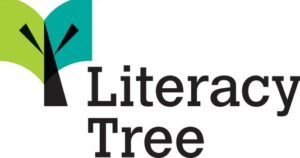
At Southill we believe that a quality English curriculum should develop children’s love of reading, writing and discussion. We aim to inspire an appreciation of our rich and varied literary heritage and a habit of reading widely and often and through a complete book-based approach to our writing curriculum. We prioritise the teaching of reading and invest heavily in books and reading materials to excite, inspire and encourage all children to read for pleasure. We recognise the importance of nurturing a culture where children take pride in their writing, can write clearly and accurately and adapt their language and style for a range of contexts. We want to inspire children to be confident in the art of speaking and listening and who can use discussion to communicate and further their learning.
We believe that children need to develop a secure knowledge-base in Literacy, which follows a clear pathway of progression as they advance through the primary curriculum. We believe that a secure basis in literacy skills is crucial to a high quality education and will give our children the tools they need to participate fully as a member of society.
These aims are embedded in our reading and writing lessons and across the wider curriculum. We have a rigorous and well organised English curriculum that provides many purposeful opportunities for reading, writing and discussion. Reading is taught daily through a mixture of whole class sessions, guided groups and individual sessions. Our curriculum closely follows the aims of the National Curriculum for English 2014.
The national curriculum for English aims to ensure that all pupils:
● read easily, fluently and with good understanding
● develop the habit of reading widely and often, for both pleasure and information
● acquire a wide vocabulary, an understanding of grammar and knowledge of linguistic conventions for reading, writing and spoken language
● appreciate our rich and varied literary heritage
● write clearly, accurately and coherently, adapting their language and style in and for a range of contexts, purposes and audiences
● use discussion in order to learn; they should be able to elaborate and explain clearly their understanding and ideas
● are competent in the arts of speaking and listening, making formal presentations, demonstrating to others and participating in debate.
In addition to their daily English lessons, children in Reception and KS1 follow Little Wandle- Letters and Sounds; a systematic phonics programme. Short, daily lessons focus on the sounds that individual letters and groups of letters (phonemes) make and then blending them together to be able to read words. Our phonics sessions are designed to be fun, lively and interactive, developing children’s skills and confidence day by day. Children get many opportunities and are encouraged to apply their phonic knowledge throughout the day. Teachers monitor the children’s progress carefully and keep in touch with parents/carers about how this is going.

